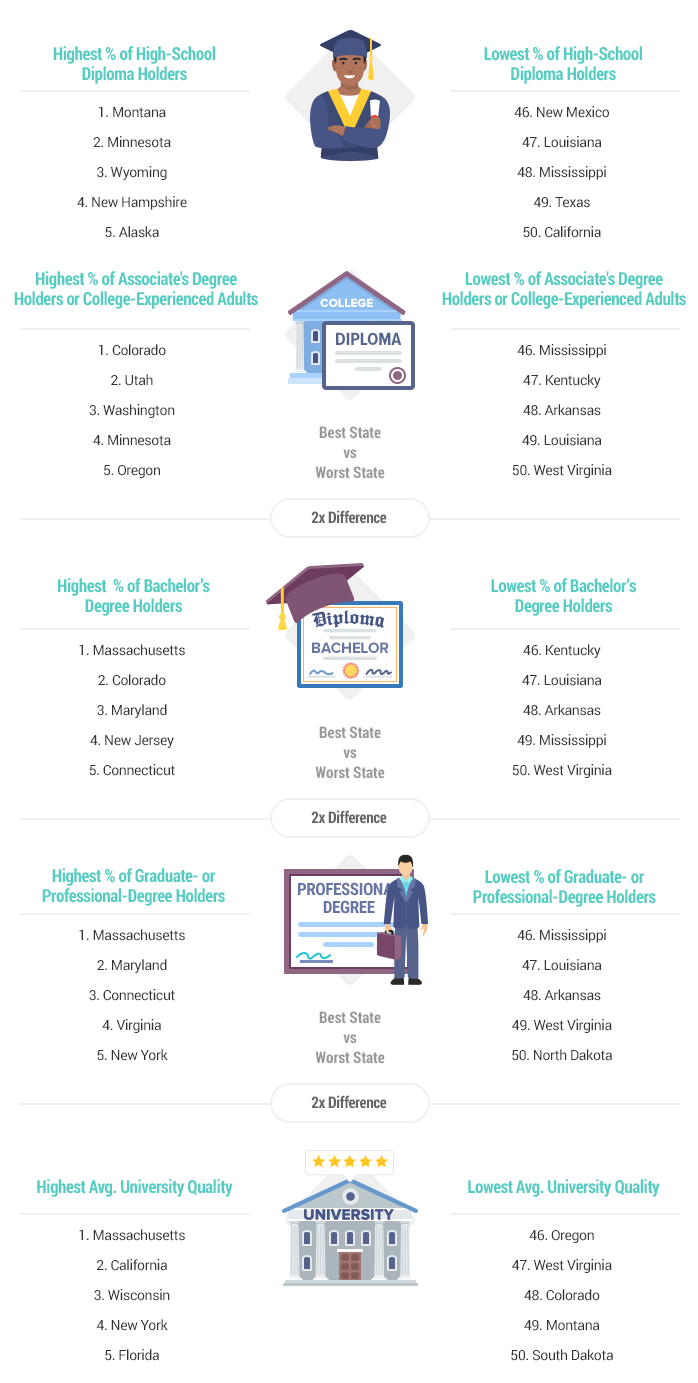By and large, higher education levels are connected with higher income potentials and lower chances of unemployment. But as Dr. Ashley Rogers Berner of Johns Hopkins University shares, high school graduation rates ‘tell us very little about the quality of K-12 schools,’ as graduation criteria varies across the country. In addition to the instability of some of that information, Dr. Merylann J. Schuttloffe of the Saint Paul Seminary School of Divinity/University of St. Thomas says, “It is a difficult time to make predictions about the value of higher education as many students continue to be priced out due to the high cost of university or college programs.”
But even still, education level is a measurable factor which varies across demographics and social structures.
Personal financial website WalletHub recently examined all 50 states across 18 metrics that examined the key factors of a well-educated population: educational attainment, school quality, and achievement gaps between genders and races. Using data from the U.S. Census, the National Center for Education Statistics, the Campaign for Free College Tuition, the U.S. Department of Education, and a number of other sources, WalletHub score each state for educational attainment and quality of education. (You can read more about the methodology and scoring here)
We take a look at the findings in this week’s Map Monday:
Massachusetts ranked as the most educated state with a total score of 81.54 out of 100, followed by Maryland, Connecticut, Vermont, and Colorado.
| 1 | Massachusetts | 81.54 | ||
| 2 | Maryland | 78.30 | ||
| 3 | Connecticut | 72.50 | ||
| 4 | Vermont | 70.19 | ||
| 5 | Colorado | 69.28 |
West Virginia came in last, with a total score of 23.65, followed by Mississippi, Louisiana, Arkansas, and Alabama.
Georgia, on the other hand, ranked No. 33 with a score of 46.80. For educational attainment, Georgia ranked 35 and for quality of education, Georgia ranked No. 20.

Findings from the report:
- Massachusetts has the highest school system rating, 21.70 percent, which is 18.1 times higher than in Montana, the state with one of the lowest at 1.20 percent.
- Massachusetts has the highest share of bachelor’s degree holders aged 25 and older, 43.70 percent, which is 2.1 times higher than in West Virginia, the state with the lowest at 20.60 percent.
- Maine has the lowest racial gap in educational attainment, with the share of black people aged 25 and older holding a bachelor’s degree at 27.47 percent compared to 20.76 percent for their white counterparts, a difference of 6.72 percent favoring black people.
You can read the complete study here.




